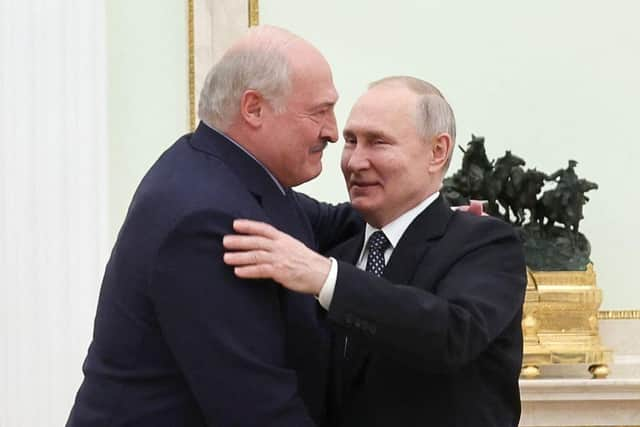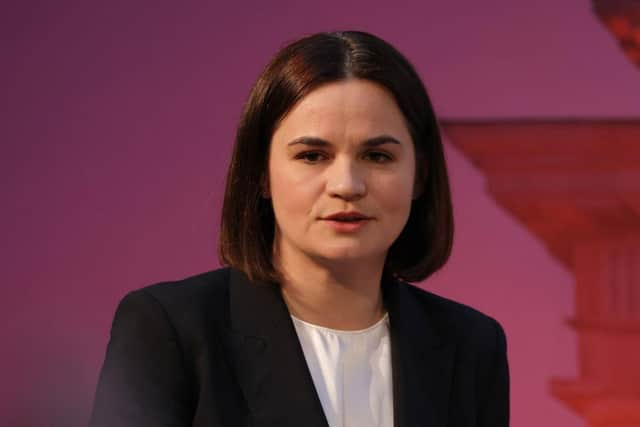War against Ukraine: Do not overlook trouble brewing in Belarus and Moldova, as leader Alexander Lukashenko visits hospital
As fighting escalates in Ukraine, with the prospect of a spring offensive from Kyiv and renewed attacks from Russia, it is easy to overlook goings-on in other nations in the region, where turmoil is brewing.
In Belarus, to the north of Ukraine, speculation continues over the health of dictator Alexander Lukashenko, who has ruled the country since 1994, and who is a key ally of Russian president Vladimir Putin. It has been claimed Mr Lukashenko, who reportedly visited a hospital this week, could be gravely unwell.
Advertisement
Hide AdAdvertisement
Hide AdHe appeared – but did not speak – at events on May 9 to mark Russia’s Victory Day with a bandage on his hand. But he was not seen for some days afterwards, while local media claimed Russian doctors were sent to Belarus from Moscow to tend to him.


He re-appeared briefly at a photo call earlier this week, dressed in military uniform and with a bandage on his other arm. If Mr Lukashenko should, for health reasons, be unable to continue as leader, there will undoubtedly be a major uproar in Belarus.
The result of the last general election, in 2020, was controversial.
Opposition candidate Sviatlana Tsikhanouskaya, who stood in last minute for her husband, Siarhei – who was arrested by the authorities and is still a political prisoner – was widely believed to have won the vote. However, Mr Lukashenko claimed victory and Ms Tsikhanouskaya was forced to flee into exile with her two children. She now lives in Lithuania, where she runs an “alternative” Belarusian government-in-waiting.
Ms Tsikhanouskaya, who I met on a visit to Scotland last year, has signalled she is ready to take action, should there be an opportunity for regime change.


“There are many rumours about the dictator Lukashenko's health,” she said earlier this week. “For us, it means only one thing – we should be well prepared for every scenario. to turn Belarus on the path to democracy and to prevent Russia from interfering. We need the international community to be pro-active and fast.”
However, most analysts believe Russia will also be waiting in the wings to take control of Belarus, if Mr Lukashenko is no longer able to lead.
Meanwhile, 600 miles away in Moldova, which borders Ukraine to the south, a pro-European movement is gathering pace.
Advertisement
Hide AdAdvertisement
Hide AdThe former Soviet country recently announced its official parliamentary business would be conducted in Romanian rather than Moldovan, in a nod to its alliance with its Romanian neighbour. On Monday, it also announced it would leave the Commonwealth of Independent States (CIS) – a regional organisation formed by nine of the 15 former federal republics of the Soviet Union.
Moldova already has tension with Russia over Transnistria, a breakaway pro-Russian republic within its borders.
The reasons given for its exit from CIS were clear. “We can no longer remain at one table with an aggressor country", said Igor Grosu, president of the Moldovan Parliament, describing CIS as an “organisation created by Russia on the ruins of the USSR”.
Mr Grosu’s next words were ominous: “The procedure could take several weeks. What could come next? What harm could he do to us?" he asked, presumably referring to Mr Putin.
The answer will be telling.
Comments
Want to join the conversation? Please or to comment on this article.
